Contractions are shortened word forms.
| Full Form | Contraction |
| do not | don’t |
| you will | you’ll |
They are used more often when speaking than writing.
| Use contractions for informal texts like: | Do not use contractions for formal texts like: |
| ✔ emails & text messages | X school assignments |
| ✔ cards | X research papers |
| ✔ notes | X scientific articles |
| ✔ character dialogues | X cover letters |
| ✔ magazine or web articles | X textbooks |
| Use contractions for casual situations like: | Use some contractions for formal occasions like: | Do not use contractions for official occasions like: |
| ✔ chats with friends/family | ± speeches | X events with protocols |
| ✔ dinner parties | ± job interviews | X academic lectures |
| ✔ game nights | ± hosting a show | X hosting the Nobel Prize |
| ✔ talking to coworkers | ± 1st time meeting someone | X official ceremonies |
To form contractions:
-
join words together
-
remove letter(s)
-
add apostrophe
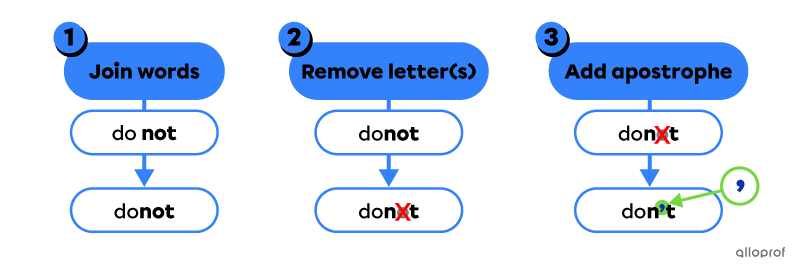
To be — Simple Present
| Affirmative form | Contraction |
| I am | I’m |
| you are | you’re |
| he is she is it is |
he’s she’s it’s |
| we are you are they are |
we’re you’re they’re |
To be + not — Simple Present
| Negative form | Contraction | |
| I am not | I’m not | |
| you are not | you’re not | you aren’t |
| he is not she is not it is not |
he’s not she’s not it’s not |
he isn’t she isn’t it isn’t |
| we are not you are not they are not |
we’re not you’re not they’re not |
we aren’t you aren’t they aren’t |
To be + not — Simple Past*
| Negative form | Contraction |
| I was not | I wasn’t |
| you were not | you weren’t |
| he was not she was not it was not |
he wasn’t she wasn’t it wasn’t |
| we were not you were not they were not |
we weren’t you weren’t they weren’t |
*In the simple past, the affirmative form of the verb to be is never contracted.
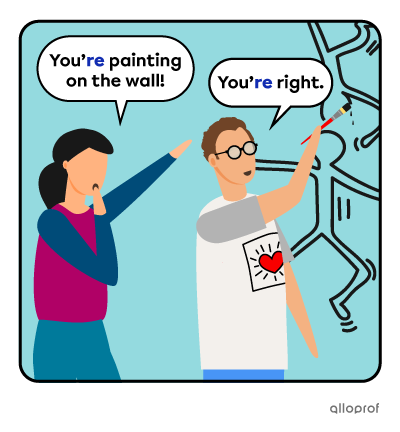
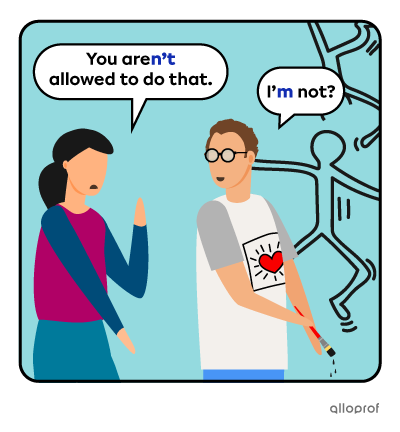
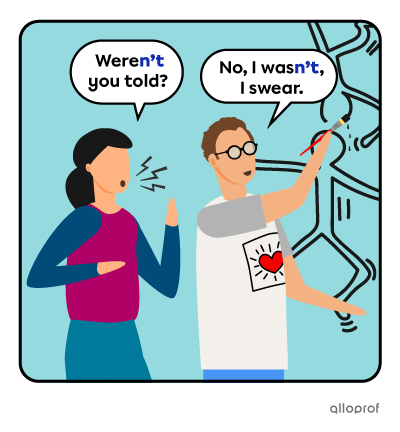
To have — Simple Present
| Affirmative form | Contraction |
| I have you have |
I've you've |
| he has she has it has |
he's she's it's |
| we have you have they have |
we've you've they've |
To have + not — Simple Present
| Negative form | Contraction |
| I have not you have not |
I haven't you haven't |
| he has not she has not it has not |
he hasn't she hasn't it hasn't |
| we have not you have not they have not |
we haven't you haven't they haven't |
To have — Simple Past
| Affirmative form | Contraction |
| had | I’d he’d they’d Ann’d |
To have + not — Simple Past
| Negative form | Contraction |
| had not | I hadn't she hadn't we hadn't Ann hadn't |
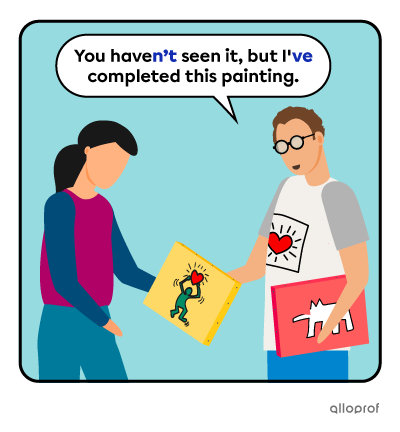
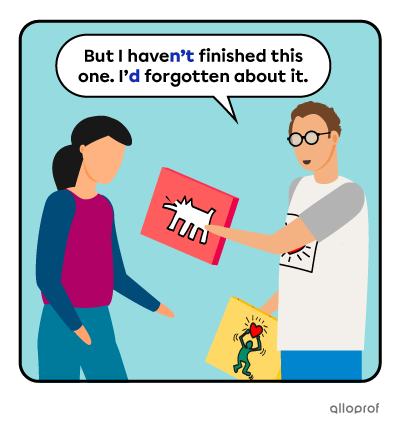
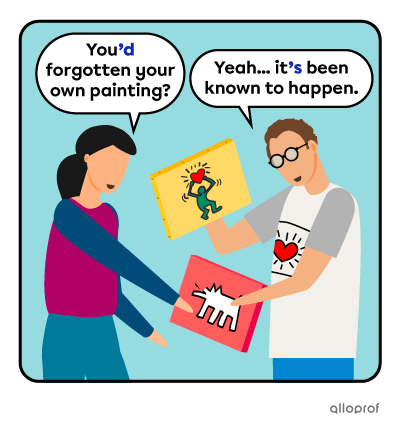
Will & Would
| Full form | Contraction |
| will | I’ll you’ll she’ll Keith’ll |
| would | I’d he’d who’d Ann’d |
Auxiliaries + not
| Full form | Contraction |
| do not | don’t |
| does not | doesn’t |
| did not | didn’t |
| will not | won’t |
| cannot | can’t |
| could not | couldn’t |
| would not | wouldn’t |
| should not | shouldn’t |
| must not | mustn’t |
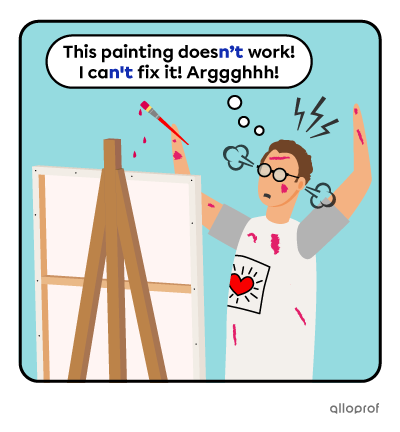
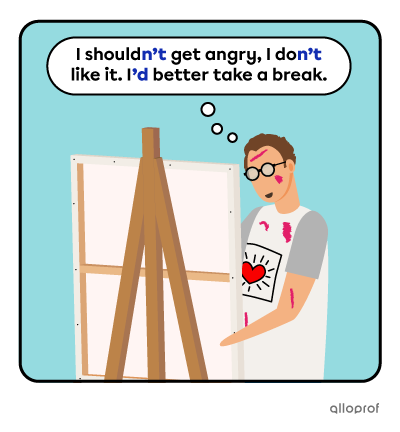
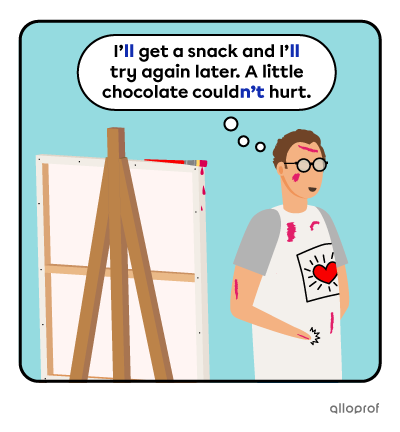
Not always contracts to n’t
| Full form | Contraction |
| do not | don’t |
| are not | aren’t |
| could not | couldn’t |
| would not | wouldn’t |
Is, has & us all contract to ’s
| Full form | Contraction |
| Keith is | Keith's |
| she is | she's |
| Ann has | Ann's |
| let us | let's |
Had, would & did all contract to ’d
| Full form | Contraction |
| she had | she'd |
| he had | he'd |
| I would | I'd |
| How did… | How'd |

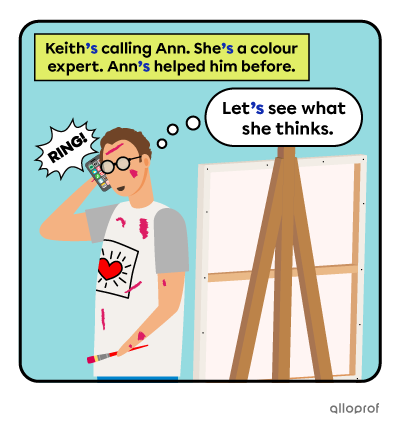

Some contractions are commonly misspelled because they have homophones. They sound the same, but are spelled differently and have different meanings.
It is the case for:
| your | Possessive adjective |
| 2nd peron singular/plural | |
| you're | you + are |
| its | Possessive adjective |
| 3rd person singular | |
| it's | it + is |
| it + has |
| whose | question word asking about ownership |
| who's | who + is |
| who + has |
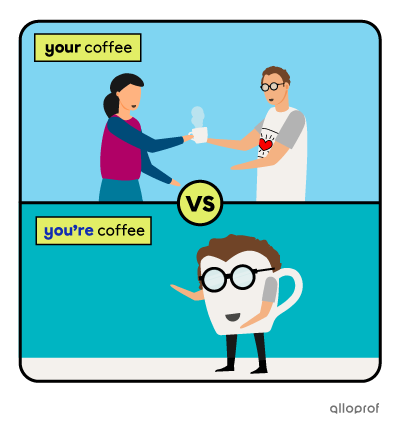
your coffee → the coffee is yours
you’re coffee → you are coffee
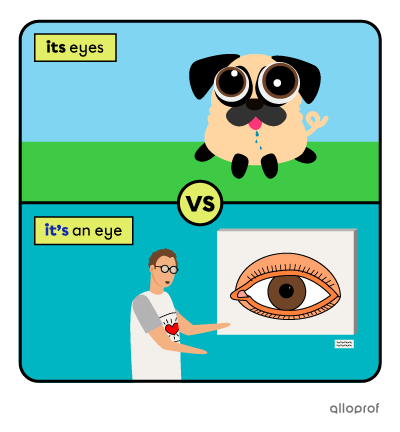
its eyes → the dog’s eyes
it’s an eye → it is an eye
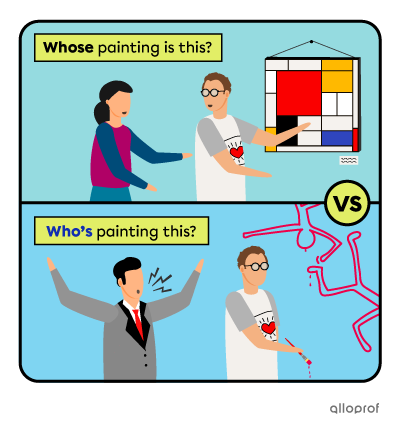
Whose painting is this? → Who owns the painting.
Who’s painting this? → Who is using paint.
| their | Possessive adjective |
| 3rd person plural | |
| there | Adverb of place |
| they're | they + are |
| theirs | Possessive pronoun |
| 3rd person plural | |
| there's | there + is |
| there + has |
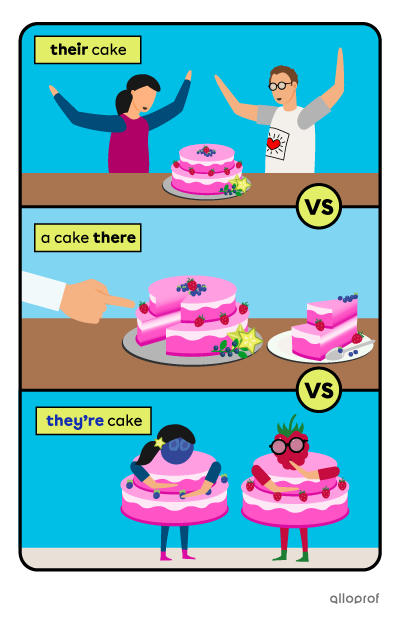
their cake → it’s Ann and Keith’s cake.
a cake there → the cake is at that place.
they’re cake → They are made of cake.
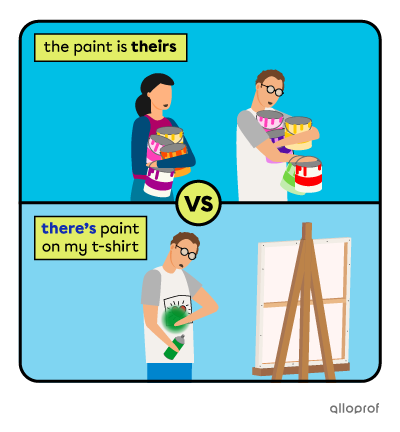
the paint is theirs → the paint belongs to Ann and Keith.
there’s paint on my t-shirt → the paint is on Keith’s T-shirt
Many contractions are almost always used in speaking.
Contractions like: gonna, wanna or ain’t.
These contractions are informal. They are only used in situations when the speakers are very familiar. Like when talking to friends and family, or classmates and co-workers.
| Use informal contractions for casual situations like: | Do not use informal contractions for formal occasions like: | Do not use contractions for official occasions like: |
| ✔ chats with friends/family | X speeches | X events with protocols |
| ✔ dinner parties | X job interviews | X academic lectures |
| ✔ game nights | X hosting a show | X hosting the Nobel Prize |
| ✔ talking to coworkers | X 1st time meeting someone | X official ceremonies |
As you have probably noticed, informal contractions do exist in written form. They are acceptable only in a few very informal situations.
| Use informal contractions for informal texts like: |
| ✔ character dialogues |
| ✔ song lyrics |
| ✔ emails/text messages to friends or family |
| ✔ cards for close friends or family |
| ✔ notes for yourself or friends |
| Do not use informal contractions for formal texts like: |
| X school assignments |
| X research papers |
| X emails/text messages to anyone else |
| X cards for anyone else |
| X notes for anyone else |
| X scientific articles |
| X cover letters |
| X textbooks |
| X magazine or web articles |
| Informal contraction | Full form | Example |
| gonna | going to | I’m gonna be done tomorrow. |
| gotta | have got to | You gotta work faster. |
| have got a | I gotta lot to do, you’re right. | |
| wanna | want to | What do you wanna work on first? |
| gimme | give me | Gimme a minute to think. |
| shoulda | should | You shoulda told me you needed help. |
| coulda | could have | I don’t think I coulda done it without you. |
| woulda | would have | It woulda taken you longer, for sure. |
| betcha | bet you | I betcha we’ll finish all the work before tomorrow. |
| ain’t | am not | That ain’t gonna happen. |
| is not | ||
| are not | ||
| c’mon | come on | C’mon, you have to believe me. |
| y’know | you know | You’re always doing things last minute, y’know. |
| ‘cause/’coz | because | But, I will help you ‘cause you’re my friend. |
| ‘round | around | If we work ‘round the clock, we’ll be okay. |
| ‘bout | about | That sounds ‘bout right. |
| ‘n | and | Then we could go for some fish n’ chips. |
| ol’ | old | We could stop by the ol’ seafood place. |
| kinda | kind of | Good idea: I’m getting kinda hungry. |
| sorta | sort of | It is getting sorta late. |
| lotta | a lot of | We still have a lotta work to do though. |
| -in’ | verbs ending in -ing | I guess we’ll be workin’ and not eatin’ then. |
The character used in the examples, Keith, was inspired by the artist Keith Haring. To learn more about his amazing art, visit the Keith Haring Foundation website.